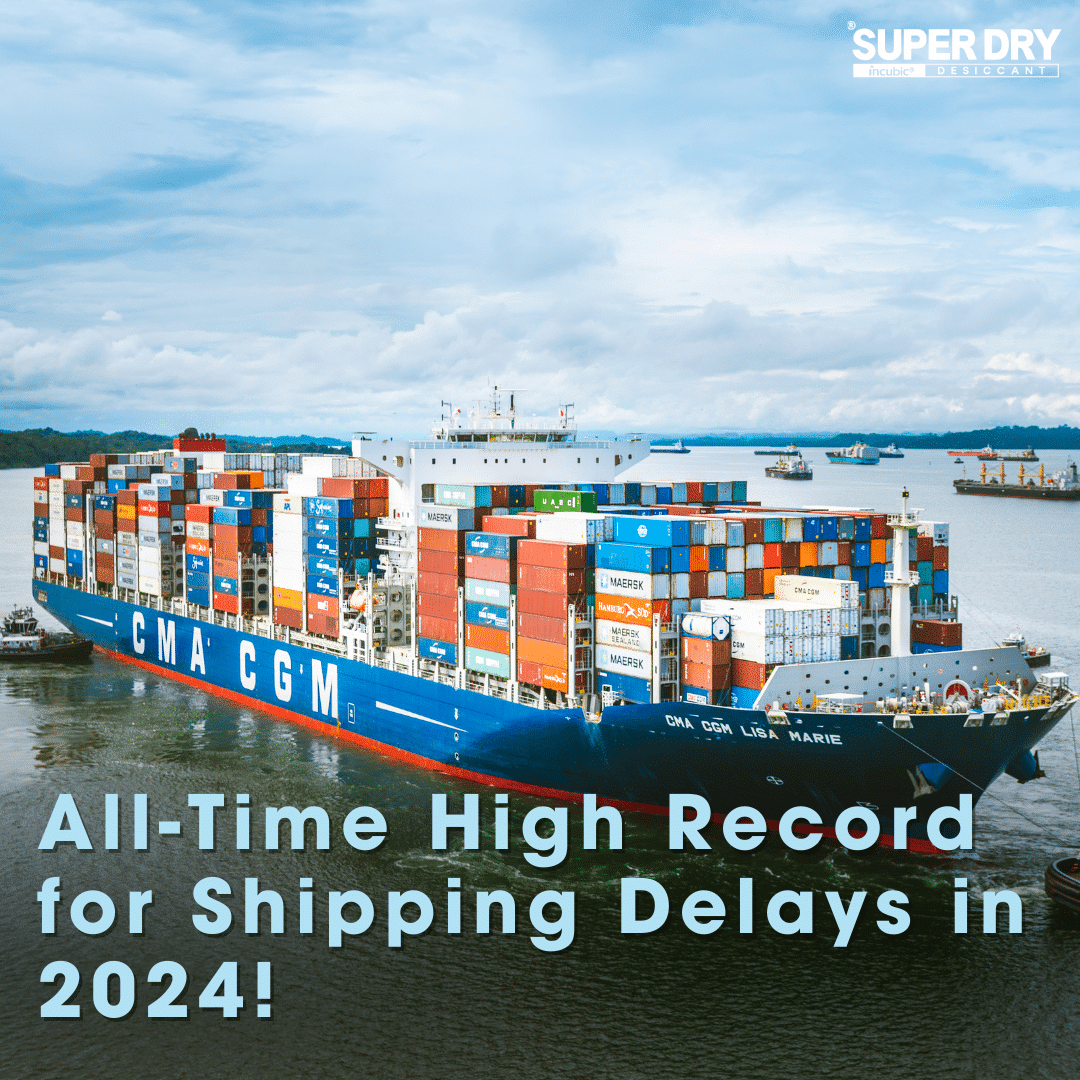All-Time High Record for Shipping Delays in 2024

Container shipping reliability has hit a new low in 2024, with delays continuing to mount across global trade lanes. According to the latest report from Sea-Intelligence, the average delay for containerships behind schedule has risen to the highest levels seen since the peak of the pandemic and the surge in container volumes. Industry disruptions, including geopolitical conflicts, port congestion, and severe weather, have played significant roles in affecting global shipping schedules.
Declining Schedule Reliability Across the Industry
Despite efforts to stabilize operations, schedule reliability in the container shipping industry has been on a steady decline in 2024. While reliability fluctuated between 50 and 55 percent during the year, September saw the industry’s reliability fall to 51.4 percent, marking a 24-month low. This represents a further drop of 1.2 percentage points compared to August, highlighting an ongoing trend of declining performance.
“While schedule reliability in 2024 has stabilized within the 50 to 55 percent range, it’s been on a slight downward trend since the May peak,” noted Alan Murphy, CEO of Sea-Intelligence. He added that the relatively consistent levels of reliability provide shippers with a clear understanding of what to expect each month. However, current figures show a stark contrast to 2019’s pre-pandemic levels, when reliability was as high as 80 percent.
Major Carriers’ Performance and Industry Goals
Maersk continues to lead the industry in schedule reliability, achieving a 55.5 percent reliability rate in September 2024, though this is down significantly from its 70 percent reliability rate a year ago. Maersk, along with Hapag-Lloyd, has ambitious plans to reach 90 percent schedule reliability on key routes with the launch of the Gemini Cooperation in 2025. Other carriers, such as Zim, PIL, and Wan Hai, also reported slight improvements from August to September. However, year-over-year declines are prevalent, with top carriers averaging a 47 percent reliability rate in September 2024—a 13-percentage point drop from the previous year.
Three carriers—MSC, PIL, and Wan Hai—saw substantial year-over-year declines, each dropping by over 20 percentage points. The average delay for late vessel arrivals has also increased, with Sea-Intelligence reporting an average delay of 5.67 days in September, up 0.21 days from the previous month. This figure marks the third-highest delay on record for the month of September, exceeded only by delays during the pandemic in 2021 and 2022.
Key Factors Driving Delays
Several factors have contributed to the ongoing delays in global shipping. Among the primary causes are the rerouting of vessels around Africa’s Cape of Good Hope due to security threats in the Red Sea. Maersk and other carriers have cited safety concerns stemming from ongoing conflicts, particularly Houthi attacks in the region. Over the past year, Houthi forces have reportedly targeted more than 200 vessels, creating a significant risk for carriers transiting the area.
This rerouting has had a domino effect on the industry, leading to higher fuel costs, increased transit times, and additional greenhouse gas emissions. Large container ports in Asia, such as Singapore, Hong Kong, and Korean ports, continue to report high levels of congestion. European ports, including those in Northern Europe and Savannah in the United States, are also facing growing bottlenecks, exacerbated by vessel bunching and delays.
The congestion and rerouting issues have raised operating costs and lengthened transit times, which could lead to further disruptions and backlogs as winter weather challenges complicate transit routes near South Africa.
The Road Ahead: Prolonged Disruptions Expected
Looking forward, the industry anticipates that disruptions will continue into 2025, largely due to unresolved geopolitical issues and supply chain vulnerabilities. Maersk recently cautioned that Red Sea rerouting and other challenges could persist for several months, affecting schedule reliability and global shipping performance.
As delays continue, shippers and businesses face added pressure to safeguard their products during extended transit times. Increased congestion and prolonged routes expose cargo to a higher risk of moisture damage due to fluctuating temperatures and humidity levels. Super Dry Desiccant offers essential moisture control solutions that protect goods from the damaging effects of humidity during these extended transit times. With Super Dry, companies can prevent moisture damage, reduce product loss, and maintain quality, ensuring safe delivery despite the ongoing shipping challenges.
